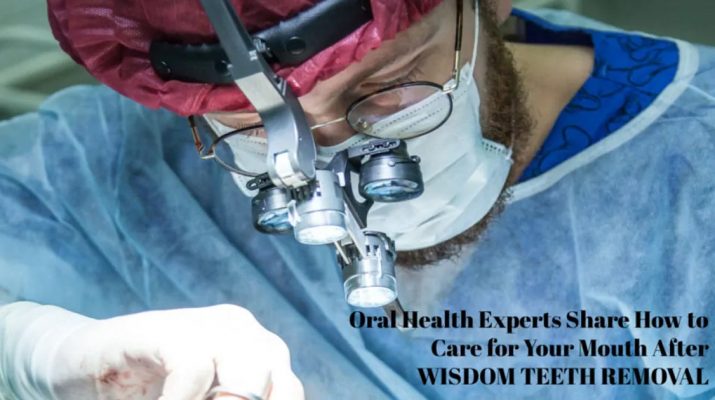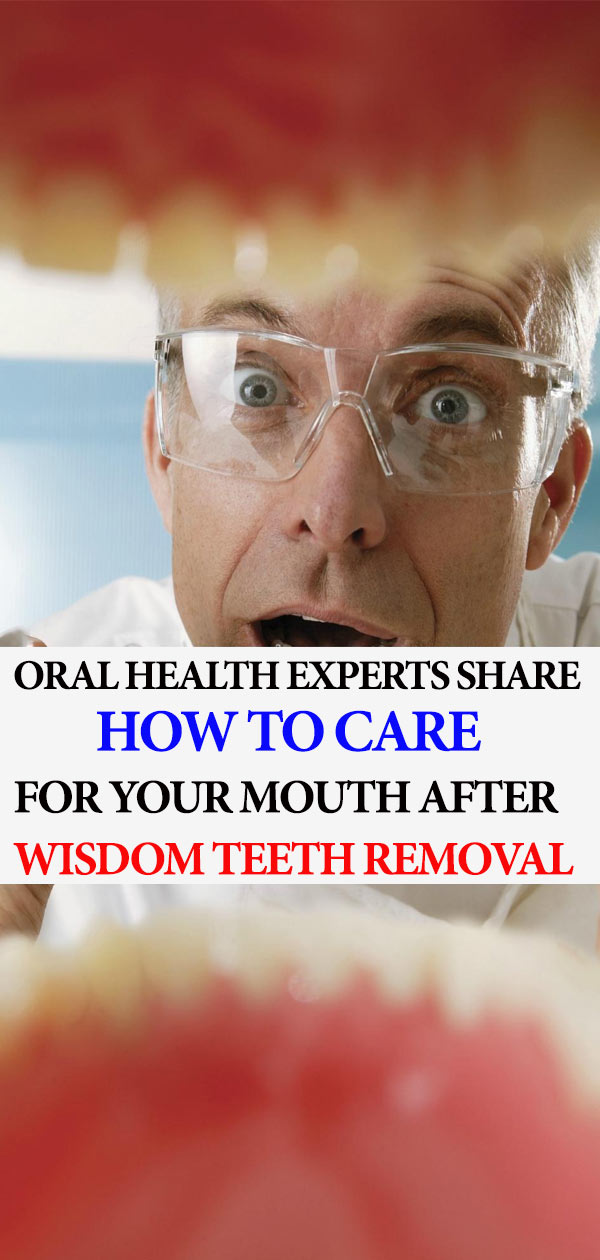Wisdom teeth removal is a common albeit serious surgical procedure.
Every year, millions of people have their wisdom teeth removed, and if you are within the age range of 17 to 25, the chances are that you’re going to be visiting your dentist soon to have yours extracted as well. Recovering from wisdom teeth removal can be a harrowing and uncomfortable process.
However, by embracing good dental care practices and carefully adhering to the advice of your dentist or oral surgeon, you can speed up your recovery rate, reduce any associated pain and swelling. And, most importantly, you will prevent infections or complications during this recovery phase.
Here are some tips shared by the oral health industry experts at the American Dental Association.
1. Bring Down The Swelling And Pain With Ice Or Cold Packs
Ice packs are usually the first resort when it comes to easing everyday pain and inflammation, and when it comes to wisdom tooth extraction, this is no exception. For the first 24 hours after dental surgery, apply ice packs to the cheek closest to the extraction site. However, remember to take a break from using the pack every 20 minutes or so.
It is best to use only pain medications as recommended by your dentist. However, some over-the-counter medications such as acetaminophen can prove adequate to help manage the pain after wisdom teeth removal. Be sure to ask your dentist about this before your procedure–so you may stock up the day before!
2. Eat Right And Drink Lots Of Cold Water
As your dentist or oral surgeon would inevitably tell you after your wisdom teeth removal, you must not consume solid foods for at least the first 24 hours after the procedure. No hot or spicy foods either. Alcohol, hot beverages, coffee, and caffeinated and carbonated drinks must be avoided.
You need to keep your body well-fed, nourished, and hydrated for quick and easy recovery.
Therefore, soft foods and cold water to reduce inflammation are highly recommended. Healthy smoothies, applesauce, or yogurts are excellent choices. After a while, if you feel up to it, you can start trying out semi-solid foods.
Some dentists suggest stocking up on cold coconut water. A more delicious alternative to standard, pure water, coconut water provides you with essential nutrients such as glucose and keeps you energized and satisfied. And the crispy coldness is just what the doctor ordered.
3. Don’T Breathe Through Your Mouth
Breathing through your mouth after a wisdom tooth extraction can be sorely tempting, but you’ve got to stay strong and resist that temptation. Why? When you breathe through your lips instead of your nose, your mouth dries off at a much faster rate. This dryness disrupts the normal alkalinity of your mouth, gives harmful bacteria ample opportunity to multiply, and increases the chances of contracting an infection.
4. Stay Alert To Prevent Dry Socket
Once the wisdom tooth extraction is complete, your body immediately starts the healing process by forming a blood clot over the incision created during surgery. This clot acts like a scab over the surgical wound and helps cover and protect otherwise exposed bone and teeth tissues. When this clot is dislodged, the bone and nerve endings are exposed and could cause you severe pain. This condition is often referred to as a dry socket and must be avoided at all costs.
To Prevent Dry Socket:
- Don’t sip liquids through a straw for at least a week after wisdom teeth removal.
- Don’t spit, brush your teeth, or rinse your mouth with mouthwash for the first 24 hours after a wisdom tooth extraction.
- After this compulsory period has elapsed, gently brush your teeth and be extra careful around the extraction site.
- Then, use only warm salt water in rinsing your mouth every two hours and after each meal.
- When replacing the gauze given to you by your dentist to stem the bleeding, ensure you soak the new dressing in water before putting it in your mouth. Dry gauze can stick to the clot and dislodge it at the slightest movement.
5. Elevate Your Head Regularly Using Pillows
Keeping your head at the same height with the rest of your body ensures that blood continually flows towards the extraction site. Once this happens, the wound would naturally start to throb, and the area around it begin to swell. This means more pain and discomfort for you and a longer recovery time.
So, to hasten your recovery, for the first 72 hours after your wisdom teeth removal, use several pillows to position your head at a significantly elevated angle to the rest of your body. This way, the blood mostly flows downwards, away from the wound.
6. Gently Massage Your Mouth Muscles
During dental surgery, your mouth is kept open for an extended period, putting a severe strain on the muscles around your mouth and cheeks. Therefore, it is not uncommon for these muscles to feel sore, cramped, and tender after your wisdom teeth removal.
This sensation can add to the overall pain and make you uncomfortable. To ease your discomfort and release tension, gently massage the muscles for several minutes.
7. No Smoking
Tobacco inhibits tissue repair and replacement. Therefore, smoking immediately after dental surgery is a surefire way to prolong your recovery and worse, leave yourself wide open for oral infections. If you must indulge, wait 72 hours after your surgery and not a minute before. If you prefer chewing tobacco, then a week should have elapsed before you indulge.
8. Most Importantly, Rest!
Take time out to recover. If you must resume work immediately, do so the day after your surgery. Give your body enough rest and do your utmost best to avoid strenuous activities.
Best Wishes For A Quick Recovery From Your Wisdom Tooth Removal!
If you judiciously follow these tips along with your dentist’s instructions, then after a month or so of your wisdom teeth removal, you should have fully recovered. If you haven’t and notice unusual symptoms such as nausea, pus in your oral cavity, and persistent bleeding, pains and swellings, do visit your dentist immediately.


